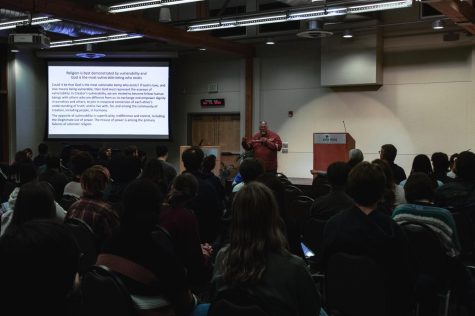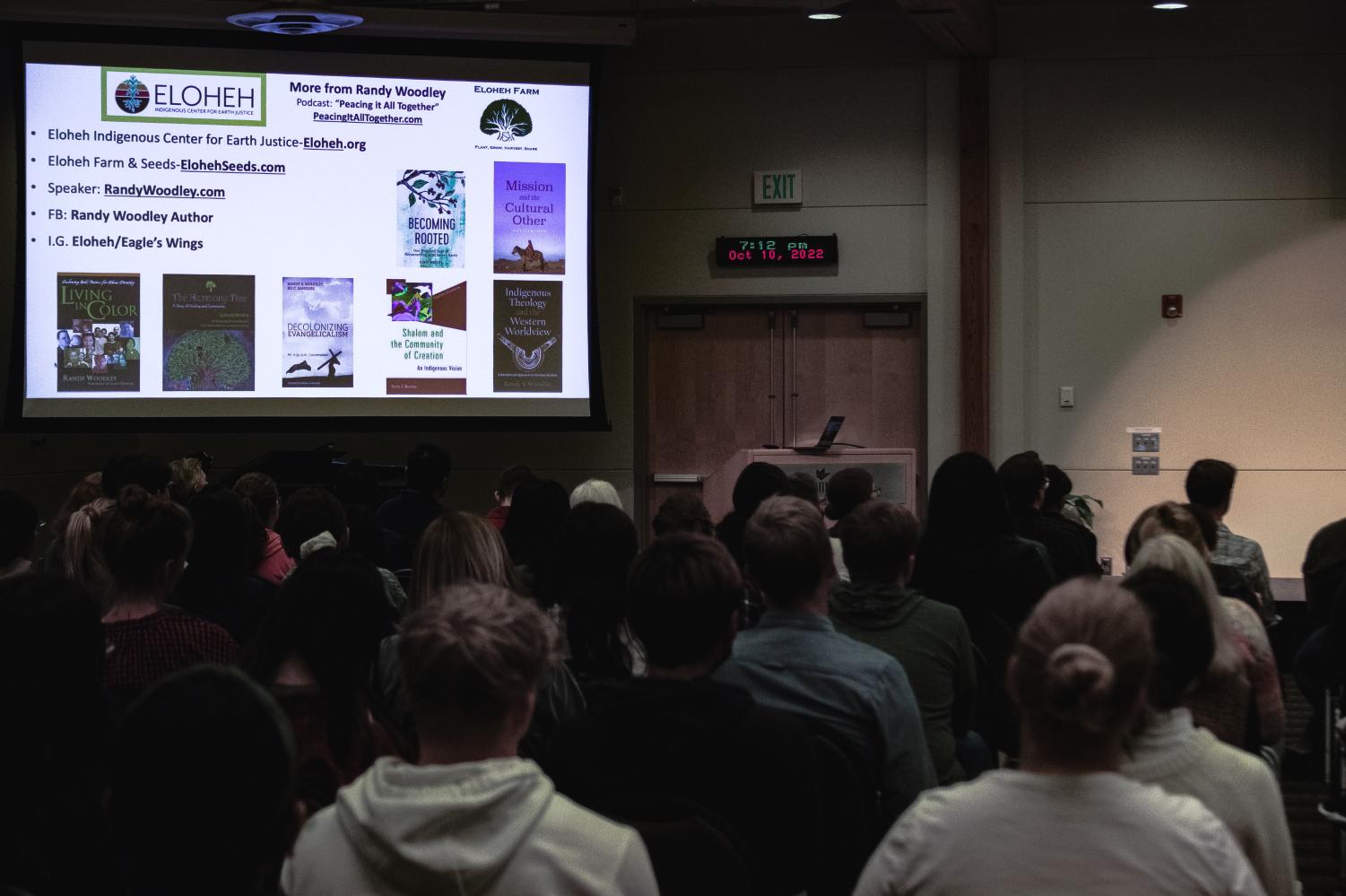Learning truth through experts
Panel discussions provide SPU students with necessary insight to navigating sensitive world issues
October 21, 2022
It takes a lot of courage for a person to step outside of their comfort zone and learn about a topic that is unfamiliar to them, especially one that may lead to heated disagreements. However, it is worth becoming educated on topics that exist beyond the boundary of a person’s main social circle. At Seattle Pacific University, an excellent way to enter the conversation is to attend panels and professor and guest-led lectures.

Over the last 131 years, SPU has held many on-campus panels to address topics from world events to age-old theological questions. Iranian protests and Indigenous world views were the topics of the most recent panels on SPU’s campus.
On Wednesday, Oct. 5, three SPU professors, journalism professor Dr. Sara Shaban, history professor Dr. Alissa Walter and world Christian studies professor Emerita Dr. Miriam Adeney, spoke on a panel to students and staff detailing the events of recent Iranian protests. Each professor provided a unique perspective and angle to understanding the climate which has sparked an increasing number of Iranian feminist protests across the country.
At the panel titled “Iran’s Morality Police and the Murder of Masha Amini” students, professors, staff and community members flooded the room, leaving almost all the chairs occupied and many reverted to taking notes while sitting on the floor.
Although many students who attend panels may have little to no understanding of the topic before attending, it is very common for them to come away with a newly acquired understanding of the issue discussed among the esteemed panelists. For these students gaining this knowledge only comes from environments such as these, so they need to attend.
Third year physics major Ester Mutesi is planning to attend more panels after her experience at the panel because she feels as if it was a great way for her to fact check herself and stay honest.
“I think I wanted to get the answer to ‘what should I be looking for?’ What insight can I get from the professors to help understand what the movement is about? I haven’t been really keeping in touch because I know with the internet it can be tricky,” Mutesi said.
When people rely solely on the internet to get their information, misinformation can be spread just as quickly as the truth. This is especially true when the topic is controversial and multilayered, such as the recent Iranian protests and the morality police’s role. So, students need to be cautious of which source their information is coming from.

On Monday, Oct. 10, SPU held a lecture titled “Indigenous Spirit: Weaving Justice and Peace in a Wounded Land.” The lively and enigmatic Rev. Dr. Randy Woodley spoke on the importance of adopting an indigenous worldview of stewarding all creatures of the earth. Like the Iranian panel, there were upward of 50 attendees, consisting of students, faculty, staff and community guests.
Third year English major Helen Petersen said that she attended because of her desire to learn.
“What drew me here was the fact that I’m just starting out learning this ancestral history and earth stewardship myself. So, I thought it would be nice to get moments from other people who are already connected into that, and also I really dig this kind of earth connections stuff,” Petersen said.
Petersen also found the panels to be extremely helpful for the way that she learns and find that they are the perfect place to see how other people’s minds work.
“I call myself a perpetual learner. I’m always looking for things that I don’t know or things I could expand on. I think these panels are really good for finding out information about things you may not know about as well as listening and learning about how others think. I will probably continue to go to things like this,” Petersen said.
The lecture even brought in SPU graduate students, such as a second year marriage and family counseling graduate student, Nathaniel Read. He, like many other students, decided to attend this panel because of its application to the curriculum in his courses.
“I think that, especially in a Christian education environment, holistic learning is more important than ever. These people who are experts in what they do, like Dr. Woodley, give really profound and focused insight into areas that may not be completely touched on in one particular program or another,” Read said. “To be able to have this process of holistic learning from people who are experts in their field is honestly such a privilege.”
Panels, lectures and discussions like these have proven essential to a well-rounded and experiential education. Students have the opportunity to converse with experts in fields other than their area of study and thus apply their classroom learning to real-world issues and debates.
Campus-led panels are enjoyed by many students, from first-year undergraduates to students continuing their education in graduate school. Events such as these should continue to be provided in an effort to continue to promote enriched learning for all students at SPU.


























































































